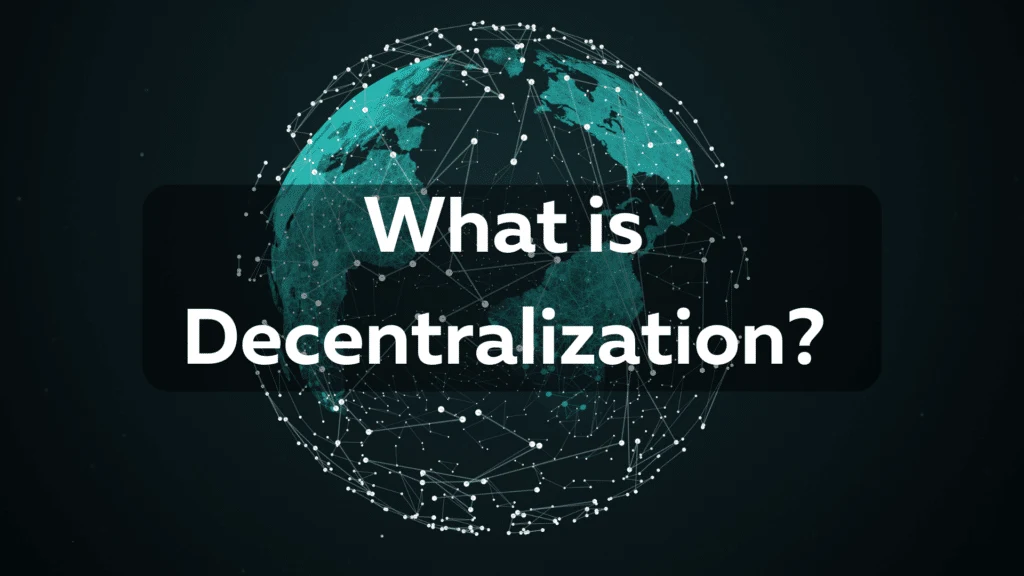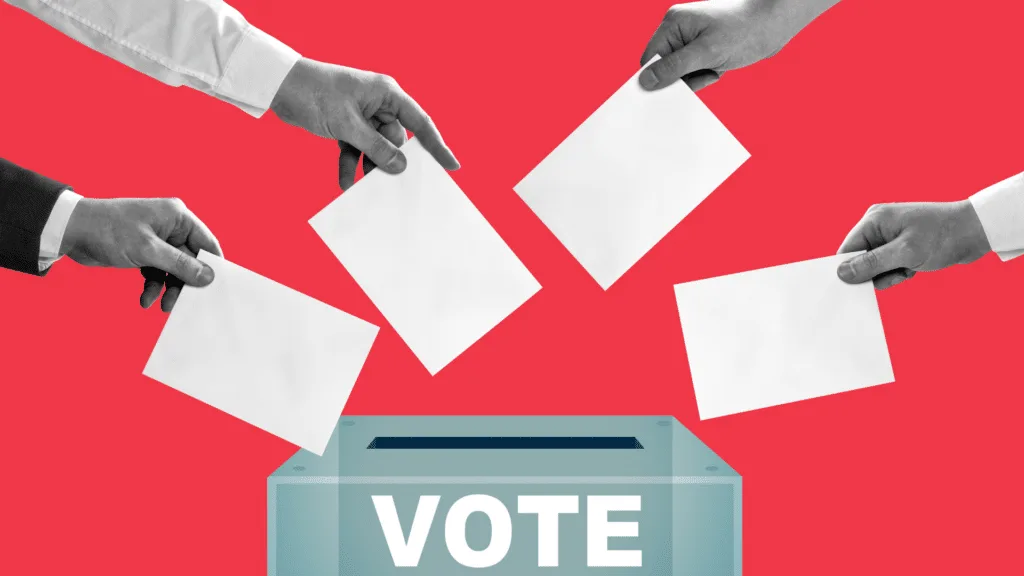What is Decentralization?
Decentralization means control is distributed among a big network of participants such that everyone takes part in the decision-making process. Take people who are part of a blockchain – like Ethereum, for instance. All these people have the right to vote on how things should be run.
The long definition
Decentralization refers to the transfer of control and decision-making from a central authority like a bank to a distributed network of participants such as in a blockchain.
This allows for a more secure, transparent, and efficient system that is not subject to manipulation or control by a single entity.
Decentralization in cryptocurrency and blockchain can be applied to financial services, digital identity, digital asset management, and smart contracts, among other applications.

What is decentralization in cryptocurrency and blockchain?
In the world of cryptocurrency and blockchain, decentralization is the lack of central authority or third-party control over the system.
When we talk about ‘the system’ we mean the way financial transactions are conducted and recorded. Instead of a boss or middleman who gets all the say in the system, decentralized systems like a blockchain are very democratic. Think of banks that set fees and decide who can do what. Blockchains don’t have this sort of limitation.
In decentralized blockchains, there is no central owner, board, or government. Control and decision-making are distributed among a network of participants who are given voting rights to make decisions about the future of the network.
Decentralization in cryptocurrency and blockchain can be applied to financial services, digital identity, digital asset management, and smart contracts, among other things.
Benefits of decentralization in cryptocurrency and blockchain
Decentralized blockchains are secure and cost-effective, making them ideal for financial transactions and other digital assets. Their decentralized nature also means that no single entity has control over the data, making them resistant to censorship and manipulation.
If you believe in democracy, then you’ll love decentralized systems. They are the ultimate form of democracy because all network participants are given voting rights to make decisions about how things should be run.

Examples of decentralized blockchains
Decentralized blockchains are the backbone of many of today’s most popular cryptocurrencies. They are networks of computers that are used to securely record and store data, such as monetary transactions.
The most well-known example of a decentralized blockchain is Bitcoin, the world’s first cryptocurrency. Bitcoin is used to securely transfer funds between users without the need for a third party.
Other popular examples of decentralized blockchains include Ethereum, Litecoin, and Dash. These blockchains are powered by their respective cryptocurrencies and are used to facilitate transactions and smart contracts.
